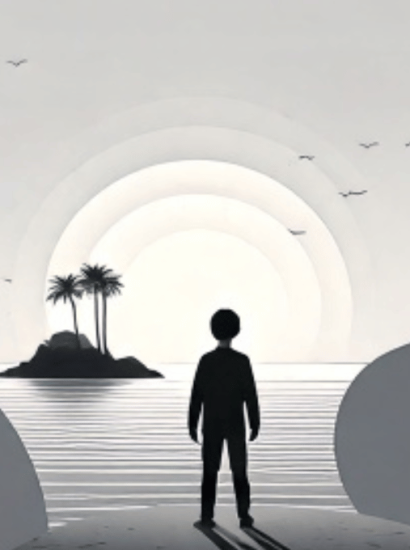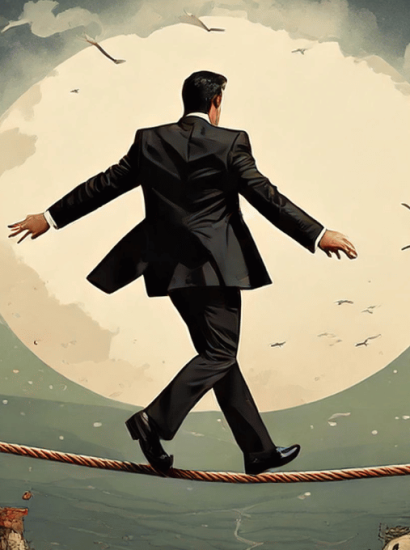This post is also available in: ΕΛΛΗΝΙΚΑ (GREEK) TÜRKÇE (TURKISH)
Twenty days ago, while presenting the ‘Cyprus-Tomorrow Plan’ [Translator’s note: the Cyprus Recovery and Resilience Plan, which aims to utilise €1.2 billion of EU funds in 2021-2026], Averof [DISY leader Averof Neophytou] put the nice-sounding goal of green growth within the framework of his election campaign. He expanded on his vision for a green economy with sustainable development, where protection of the environment and tackling climate change would play a central role. He presented the pillars upon which, he declared, he would make Cyprus “a model of a healthy green state” and “an example to the world” – within the next five years. “Our vision is to build a green Cyprus,” he explained, “and to make the golden-green leaf, in practice, our golden-green Cyprus” [Translator’s note: reference to the song ‘Chrisoprasino fyllo’ (golden-green leaf) written about Cyprus]. And in his typically loquacious manner, he pointed out that Cyprus can become green only with DISY as the protagonist. It was around the same period that Nicos Anastasiades stated “environmental protection is at the heart of our policies” and announced the undertaking of initiatives by Cyprus at the European level to save the environment and the planet, making everyone wonder if he lives in this country.
And then suddenly, the Akamas local plan appeared. Or better yet, parts of it started making their appearance – mainly as a result of reactions from the competent environmental authorities – since Nicos Nouris, in his usual practice, chose to invoke every argument so that yet another issue of public interest would not become part of the public debate. And Averof Neophytou, who would make Cyprus golden-green and an example to the world, disappeared. But he let others, who declare to be very close to him and by his side, who are photographed with him and put their families at the disposal of DISY and its President, to talk incessantly. To go from (television) channel to channel, putting forth the inalienable constitutional right of the land owners to build on what’s left of Akamas. And to express their vision of “sustainable” and “measured” development, which will reach up to the coast. With theme parks, tourist developments, farms, refreshment facilities and isolated housing. Without any documentation on the development needs of the area and without taking into account the impact on the species and habitats of the Natura 2000 Network. So, those who had promised to review the (housing) development in the sea caves area and put a stop to it if the right procedures had not been followed, but then approved the cementing of the whole area, now declare themselves guardians of the proper development of the rest of the Akamas too.
For a year now, Averof Neophytou is appearing as the one who will put all the pieces of the puzzle together. He will never accept Akamas to be cemented over, he says, but neither will he accept the victimisation of landowners there. And he declares he is ready to help ensure the environment is preserved for future generations without destroying the people and inhabitants, with a mild, sustainable development, where man and the environment will coexist. Green growth, however, is not an abstract concept. It presupposes, first and foremost, respect for and protection of the environment. So, when Averof Neophytou invokes the coexistence of environment and man, and even aspires to be a protagonist in the effort to make the country a model of a healthy green state, he should also explain how he perceives this. But mainly, how he perceives the rights of the local inhabitants.
How do special developments outside development zones, tourism developments in agricultural zones and on hills with environmental value, and quarry zones in the heart of Akamas match with the sustainability and tackling of climate change that he set as a goal?
How is the preservation of the environment for future generations consistent with proposals promoted by the government through the local plan and by him with his silence, and which, according to environmental studies and reports, will have a serious, long-term, negative and irreversible impact on the integrity and cohesion of the protected areas of the Natura 2000 Network and the Akamas Peninsula? How does he see mild and sustainable development?
Is Akamas an issue that only concerns those who live in the area in question, as stated by the head of the Droushia community council after meeting with him? Can the individual interest of landowners supersede the collective interest which, as documented, is being affected? Since when is it an inalienable and constitutional right to develop theme parks and hotel units in what is essentially the only green lung they have left? And what do all those people mean who, among other things, claim that “environmentalists have no right to talk, since they have neither property nor anything”, when they state that they are pinning their hopes on the DISY president to satisfy their demands?
One of the most important issues that Averof Neophytou’s candidacy had to face from the beginning was the entrenched view within society that he is behind (and by the side of) all the big interests in the country. It was, after all, something that he himself acknowledged in his first statements as a candidate. One would therefore expect that for PR reasons – if nothing else – he would have tried to distance himself from such voices that only serve to confirm the main reason Cyprus cannot be green is DISY and the interests it serves. But it seems he cannot even do that.
So Averof, leave green Cyprus aside and talk to us about Akamas.






